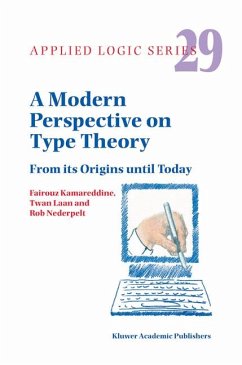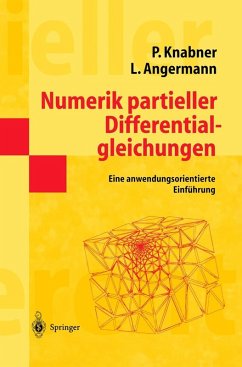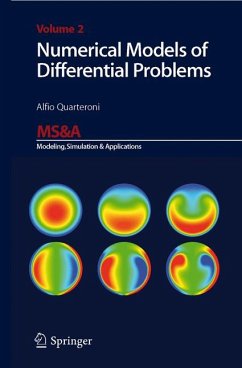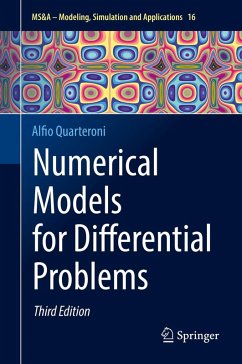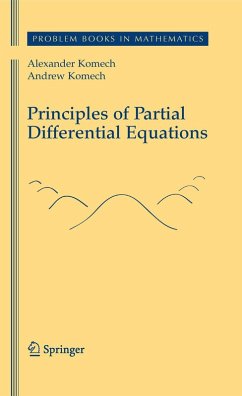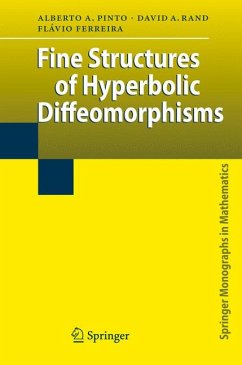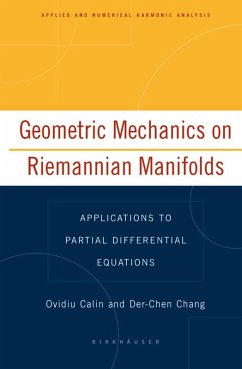
Numerical Solution of Partial Differential Equations on Parallel Computers (eBook, PDF)
Versandkostenfrei!
Sofort per Download lieferbar
112,95 €
inkl. MwSt.
Weitere Ausgaben:

PAYBACK Punkte
56 °P sammeln!
Since the dawn of computing, the quest for a better understanding of Nature has been a driving force for technological development. Groundbreaking achievements by great scientists have paved the way from the abacus to the supercomputing power of today. When trying to replicate Nature in the computer's silicon test tube, there is need for precise and computable process descriptions. The scienti?c ?elds of Ma- ematics and Physics provide a powerful vehicle for such descriptions in terms of Partial Differential Equations (PDEs). Formulated as such equations, physical laws can become subject to co...
Since the dawn of computing, the quest for a better understanding of Nature has been a driving force for technological development. Groundbreaking achievements by great scientists have paved the way from the abacus to the supercomputing power of today. When trying to replicate Nature in the computer's silicon test tube, there is need for precise and computable process descriptions. The scienti?c ?elds of Ma- ematics and Physics provide a powerful vehicle for such descriptions in terms of Partial Differential Equations (PDEs). Formulated as such equations, physical laws can become subject to computational and analytical studies. In the computational setting, the equations can be discreti ed for ef?cient solution on a computer, leading to valuable tools for simulation of natural and man-made processes. Numerical so- tion of PDE-based mathematical models has been an important research topic over centuries, and will remain so for centuries to come. In the context of computer-based simulations, the quality of the computed results is directly connected to the model's complexity and the number of data points used for the computations. Therefore, computational scientists tend to ?ll even the largest and most powerful computers they can get access to, either by increasing the si e of the data sets, or by introducing new model terms that make the simulations more realistic, or a combination of both. Today, many important simulation problems can not be solved by one single computer, but calls for parallel computing.
Dieser Download kann aus rechtlichen Gründen nur mit Rechnungsadresse in A, B, BG, CY, CZ, D, DK, EW, E, FIN, F, GR, HR, H, IRL, I, LT, L, LR, M, NL, PL, P, R, S, SLO, SK ausgeliefert werden.





